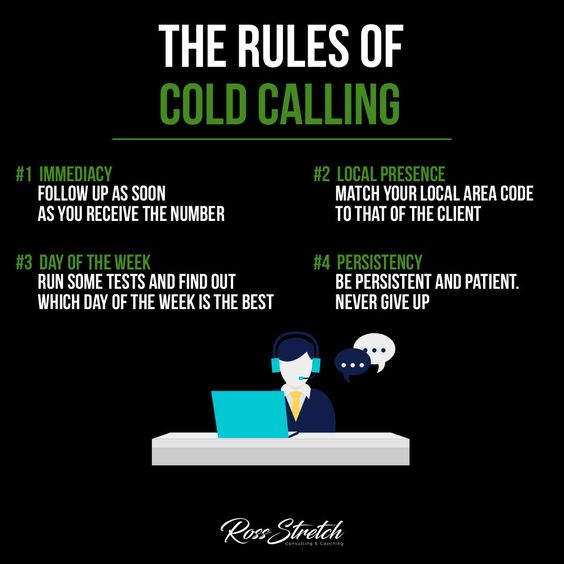Introduction
Cold calling is a traditional yet powerful sales technique that can drive results when executed with the right strategy. Despite the rise of digital communication, the human touch of a phone call remains effective. The art of cold calling, however, is governed by unwritten rules that can make or break your sales efforts.
The Importance of Immediacy in Cold Calling
Immediate follow-up on leads can significantly increase the chances of conversion. When you receive a potential client’s number, acting fast demonstrates urgency and a commitment to customer service. This promptness can set you apart from competitors who may take longer to reach out.
Establishing a Local Presence
Trust is a crucial element in cold calling. Matching your area code to that of your client can create a sense of familiarity and trustworthiness. It suggests a local presence, which can make potential clients more receptive to your call.
Timing Your Calls Strategically
The timing of your call can influence the outcome. Running tests to determine the best day of the week to make your calls can optimize your success rate. This requires patience and a willingness to analyze call data to identify patterns.
The Power of Persistency
Persistence is key in cold calling. Rejection is a part of the process, but perseverance can lead to success. Being patient and consistently following up, without being pushy, shows potential clients that you are serious and dedicated.
Crafting a Compelling Script
A well-crafted script is the foundation for a successful cold call. It should be concise, highlight the value proposition, and be adaptable to various customer responses. Practicing your script can lead to more natural and confident delivery.
Active Listening and Adaptability
Active listening is just as important as speaking. It allows you to understand potential objections and respond appropriately. Adaptability in your approach can help you navigate through different customer personalities and needs.
Overcoming Objections
Objections are not the end of the conversation but an opportunity for clarification. Being prepared to handle common objections can keep the dialogue open and lead to a potential sale.
The Role of Follow-Up
A single call rarely results in a sale. Following up is a critical step in the cold-calling process. It reinforces your message and shows potential clients that you value their business.
Conclusion
Cold calling remains a vital part of the sales process. By following these rules—immediacy, local presence, strategic timing, and persistence—you can improve your chances of success. It’s about combining persistence with patience, strategy with adaptability, and always aiming to provide value in every call.


